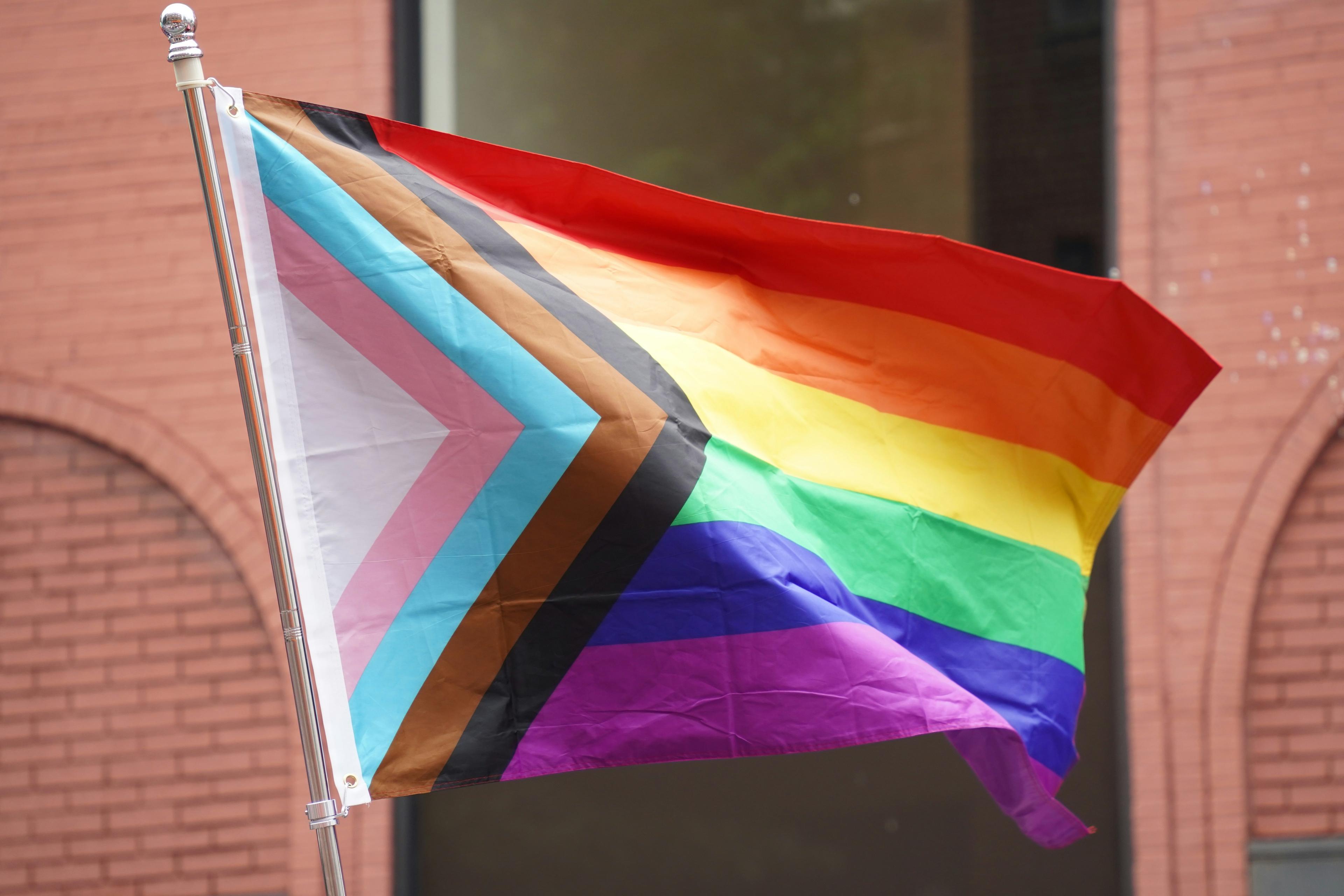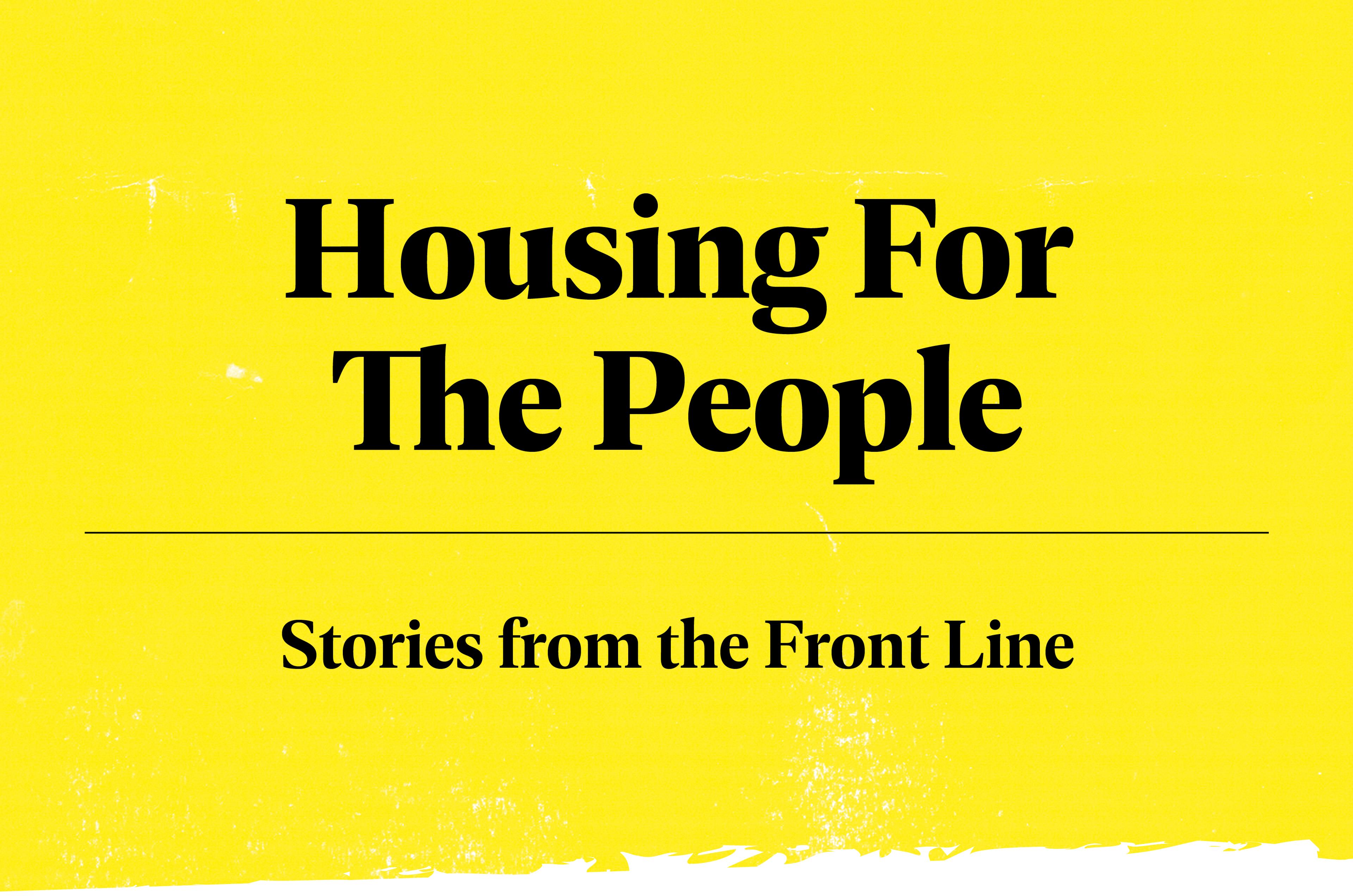The story of a homeless non-binary sex worker: “It’s a game. I get into character. I have control of my life”
By Josefine Skjødt
- Lived experience
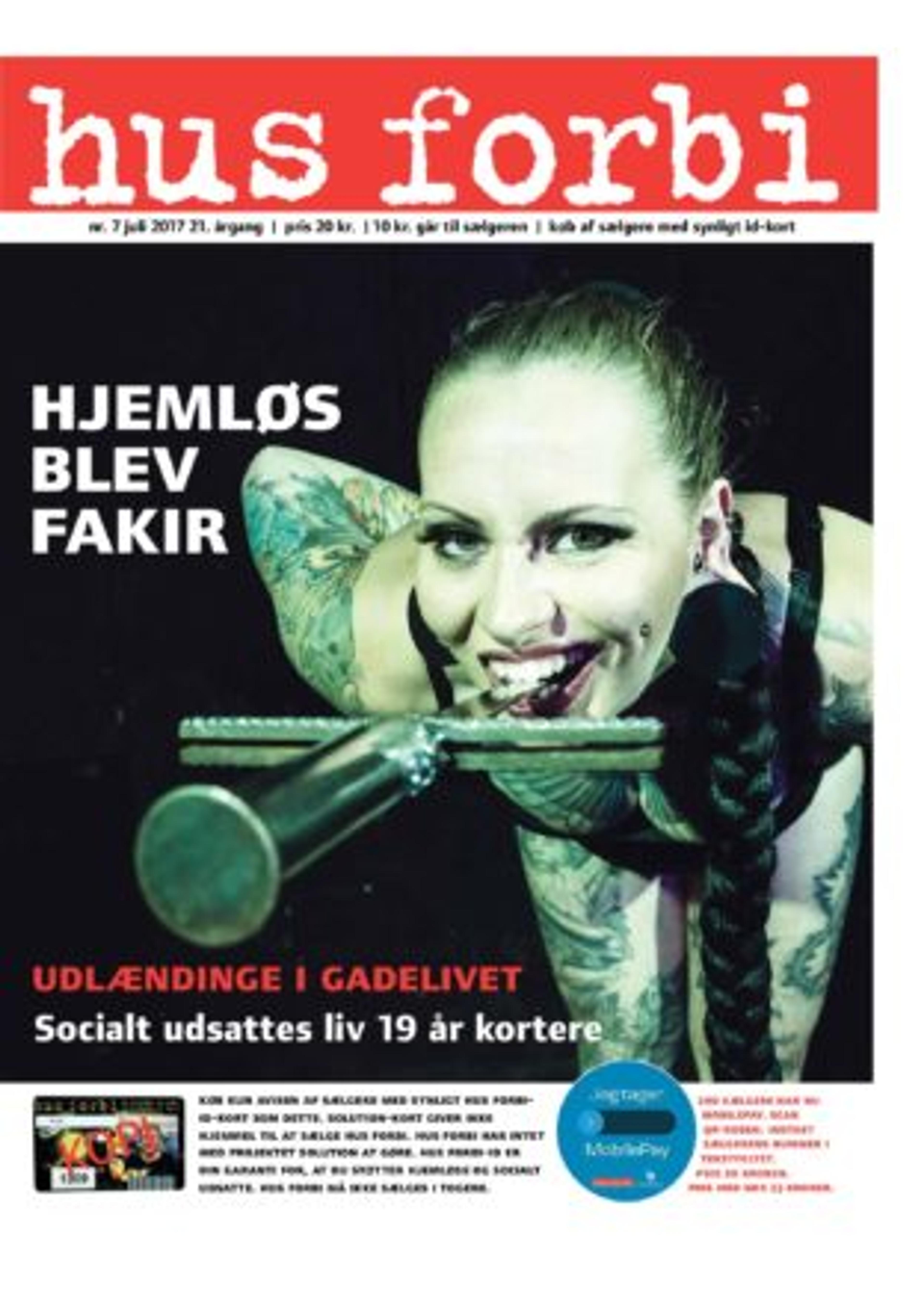
Content warning: The following story contains explicit descriptions of sex, sex work and drug use
Sex work is a subject that can arouse strong opinions and action-paralyze politicians. This is the story of sex worker Anne, who is also a vendor of Danish street paper Hus Forbi. They describe how paving their own path into a line of sex work that is “for them” means they are now in control as “a photographer, model, coordinator and customer service provider, all in one.”
“I just wanna fuck your brains out till you forget everything but my name. I don’t shave and I love my hairy armpits, pussy and legs.” Thus reads the description on one of Anne’s many escort profiles. Anne is a non-binary, homeless sex worker. We are in a small hostel room, where the walls are covered with tapestries, pride flags and drawings. In the corner is a small refrigerator overflowing with make-up and lotions. We are sitting on the sofa; Anne’s curled up with their hairy legs tucked under the arms.
“It’s a game. I get into character. I have control of my life. A life in which I’m not homeless and live in a hostel, or have to deal with education. It’s my own little play,” Anne says with a big smile.
What do they think about their customers?
“Well, I think they’re mostly sad men. I don’t think they’re creepy, and I don’t care what they look like. I think they are very insecure about themselves. They’re often married, have children, and talk about being trapped. So, I’m also a bit of a therapist.”
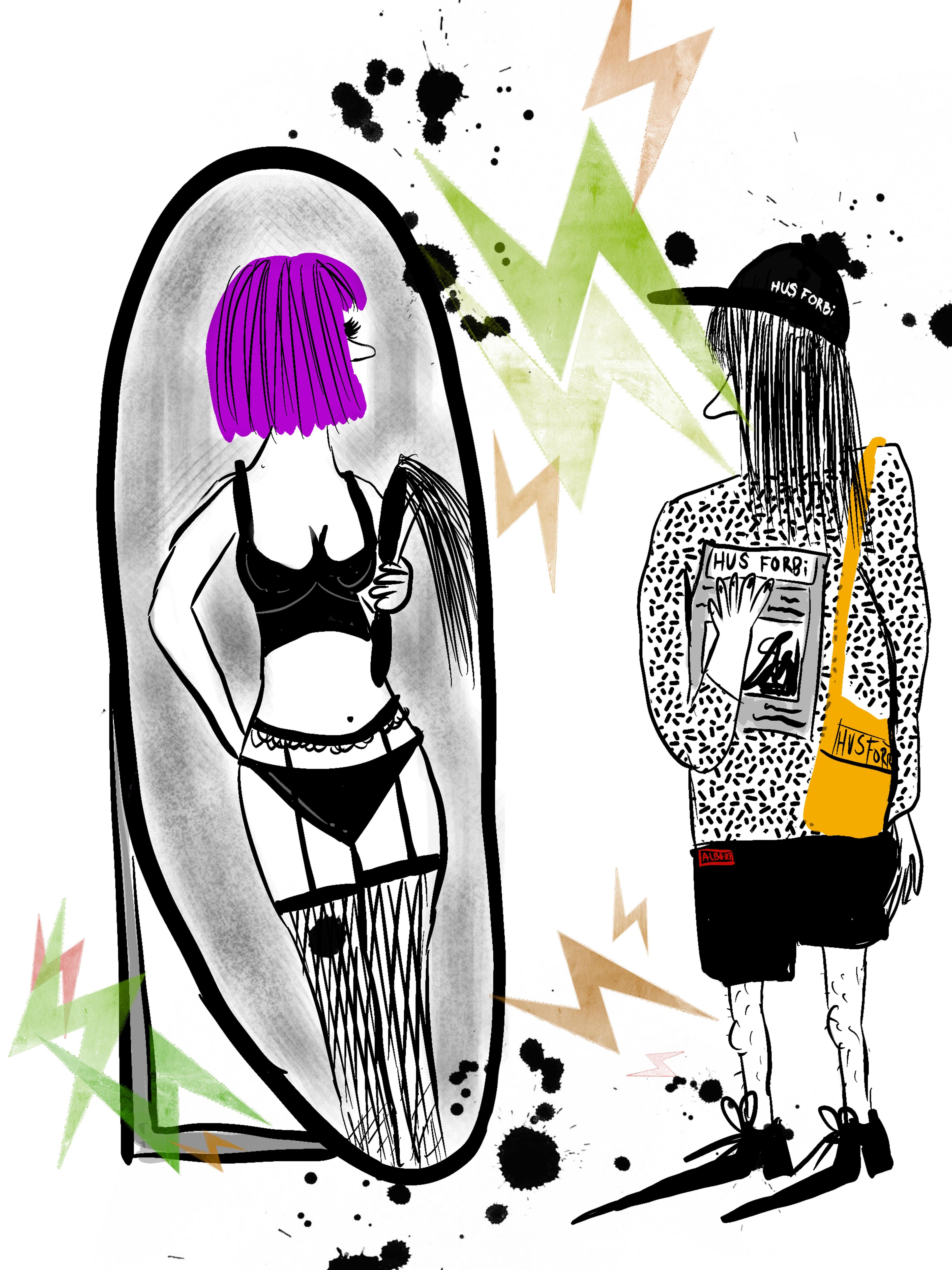
Illustration by Maja Petrea Fox
Single-family homes and princesses
Anne comes from a wealthy family and grew up among single-family homes and residential roads. But behind the facade the family couldn’t accept Anne.
“They wanted me to be their little princess, but I never was. That was before I knew that I am ‘non-binary’. At first, I thought I was a lesbian,” Anne says with a shrug. Hoping they would become “less lesbian”, Anne’s parents sent them to a boarding school. But instead, Anne fell in love with Lisa, and together they went to Copenhagen’s most famous gay women’s bar, Vela. Here you could buy a drink called ‘Strawberry Pussy’, and in the toilets Anne was soon offered drugs. That’s where the journey into drugs and the constant search for more money began. Anne and Lisa came back every weekend, and as the bar was only a stone’s throw away from Istedgade, they soon became friends with the street sex workers.
“We used all our money on drugs. One day Lisa said, we could just make money by selling ourselves. I was 16 when I tried it for the first time.”
Pie-eyed and in high heels, Anne and Lisa went to Istedgade to find a customer. They were standing at a corner when a car pulled up. But when Anne got into the car, Lisa didn’t join them. She had changed her mind at the last minute and stood frozen on the corner of the street. Anne had sex with the customer in a side street. Afterwards, they returned to the corner with their pockets full of drugs. This was easier than expected, Anne thought, and went to unleash on the city’s dance floors.
An endless hunt for money
When Anne’s year at the boarding school ended, Anne didn’t return home to their parents. They had become a couch surfer, addicted to drugs and were always looking for the next party. Anne had several “normal” jobs but started sugar daddy dating when the need for money grew.
“I got the idea from Lisa. I went with her on a sugar daddy date and waited down the road to keep an eye on how things went. It was her first time and we agreed afterwards that this was better than standing around on Istedgade.”
Anne created a profile on a sugar daddy dating website and received long messages about sexual fantasies, fancy dinner invitations and even travel destinations. Money was part of the deal but never mentioned in the messages. Officially, sugar daddy dating isn’t associated with sex, but a date where an older person gives a younger person gifts in exchange for closeness and intimacy. Nevertheless, Anne has long used it in their sex ads.
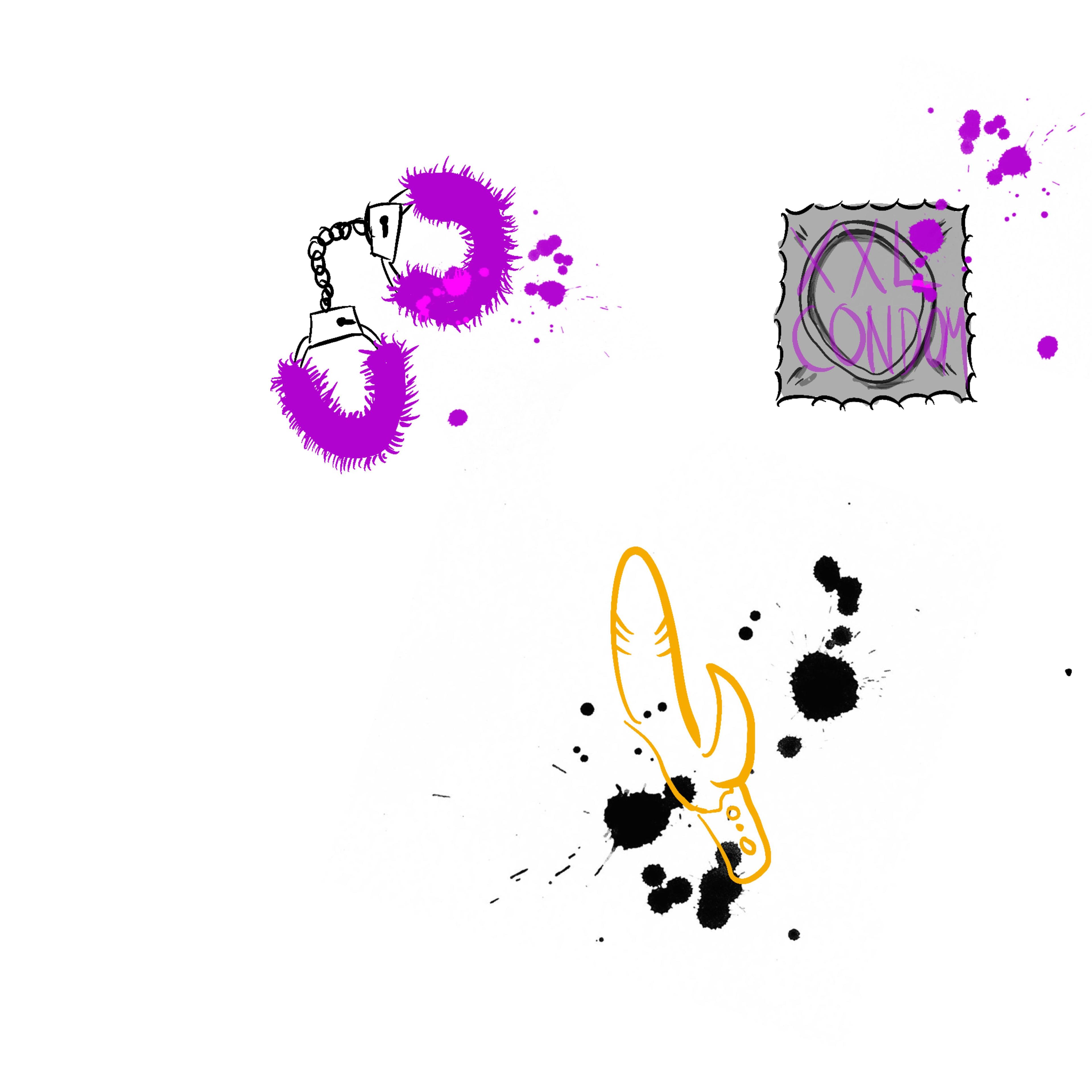
Illustration by Maja Petrea Fox
I think they’re mostly sad men. I don’t think they’re creepy, and I don’t care what they look like. I think they are very insecure about themselves. They’re often married, have children, and talk about being trapped. So, I’m also a bit of a therapist.
Did they consider it sex work?
“I didn’t even see standing on Istedgade as sex work, but a way to get drugs. I thought my life was established,” Anne laughs. “I didn’t have a place to live but I didn’t feel homeless. I had four different jobs and a lot of responsibility. I showed up for work either drunk or stoned. I was completely fucked up on drugs,” Anne says while poking their index finger at their forehead to show just how bad it was.
Dreaming of a better life
A few years later Anne met Elliot. Even though everyone had warned against him, they lived together in a symbiosis of love, drugs and feeling uprooted. The many jobs and friendships were replaced with a pram without a baby and the decision to leave Denmark. A dream of a better life spent walking across Europe, just six months after they had met.
“In the beginning we lived on Elliot’s benefits. But by the time we got to Spain they had cut off payments and we had to beg on the streets. One day we went begging in a place with many sex workers, and the area was full of British men doing coke.” Anne felt forced into sex work as there was neither money nor food left. So, when one of the British men came over one day, Anne said “yes” and went with him. Over the next several months, Anne was the only one earning any money. They lived in an abandoned hotel full of dust, broken glass and smashed windows.
“Eventually, we went back to Denmark because we couldn’t make ends meet. I didn’t get more than 50 euros at a time. It may sound like a rough trip, but it was on this trip that I found myself as non-binary.”
I am proud of it. I’m more afraid of the consequences of saying out loud that I’m a sex worker than of the consequences of sex work itself. That’s why I don’t want to join an exit programme. I would like to have help with my life, but not if someone is going to tell me that there’s something wrong with me because I’m selling sex.

Illustration by Maja Petrea Fox
From palm trees to whips
Back in Denmark, Anne continued as a sex worker, but this time they didn’t share the money with anyone.
“Now it’s for me. It’s much easier when I don’t feel pressured into it.”
Their network expanded and other sex workers introduced Anne to places where one can get tested for sexually transmitted diseases, and also to a multitude of escort websites. There’s a big difference between how Anne used to do sex work and how they do it now. Today, they work as a dominatrix – it feels a lot safer to be the one in control.
“It might involve whipping, using a strap-on anally, verbal humiliation or tying with ropes. Sex work is about much more than just lying down. I also write with clients and make ads. I am a photographer, model, coordinator and customer service provider – all in one.”
One of the hard things about sex work is that Anne needs to shut themselves down when going to work in order to cope. And it has taken years of practice to get back in touch with themselves when it’s time to go home. Anne is aware that sex work can be harmful and create a distorted image of men.
“We all have to do something for society. Ask the case worker at the job centre or the employee at the supermarket if they think it’s fun to go to work. I think I’m having more fun than them.”
Anne dreams of getting their own place and an education. They take breaks from work occasionally, but Anne doesn’t think they will stop working in the sex industry all together.
“I am proud of it. I’m more afraid of the consequences of saying out loud that I’m a sex worker than of the consequences of sex work itself. That’s also why I don’t want to join an exit programme. I would like to have help with my life, but not if someone is going to tell me that there’s something wrong with me because I’m selling sex.”
All names in this article are fictitious but known to the editors. ‘Anne’ identifies as non-binary. Anne is referred to as ‘they’ and ‘them’ in the article.
A grey area: sex work in Denmark
In Denmark, it is legal for people over 18 to both buy and sell sex. However, it is illegal to earn money from other people selling sex. Hence, it is not legal to run a brothel. In fact, if a hotel suspects that you are a sex worker, they must refuse you entry. This so-called “procuration paragraph” within the law is meant to protect sex workers from shady middlemen, but it also prevents sex workers from hiring, for example, their own telephone operators. Sex workers must be registered as self-employed and pay taxes and VAT, but they cannot join an unemployment insurance fund. This means that the state happily takes their tax money without granting them the same rights as others in the labour market.
Translated from Danish via Translators without Borders
Support our News Service
We believe journalism can change lives, perceptions, and society - underpinning democracy for a more equitable world. Learn more about the INSP News Service and how to support it here.
